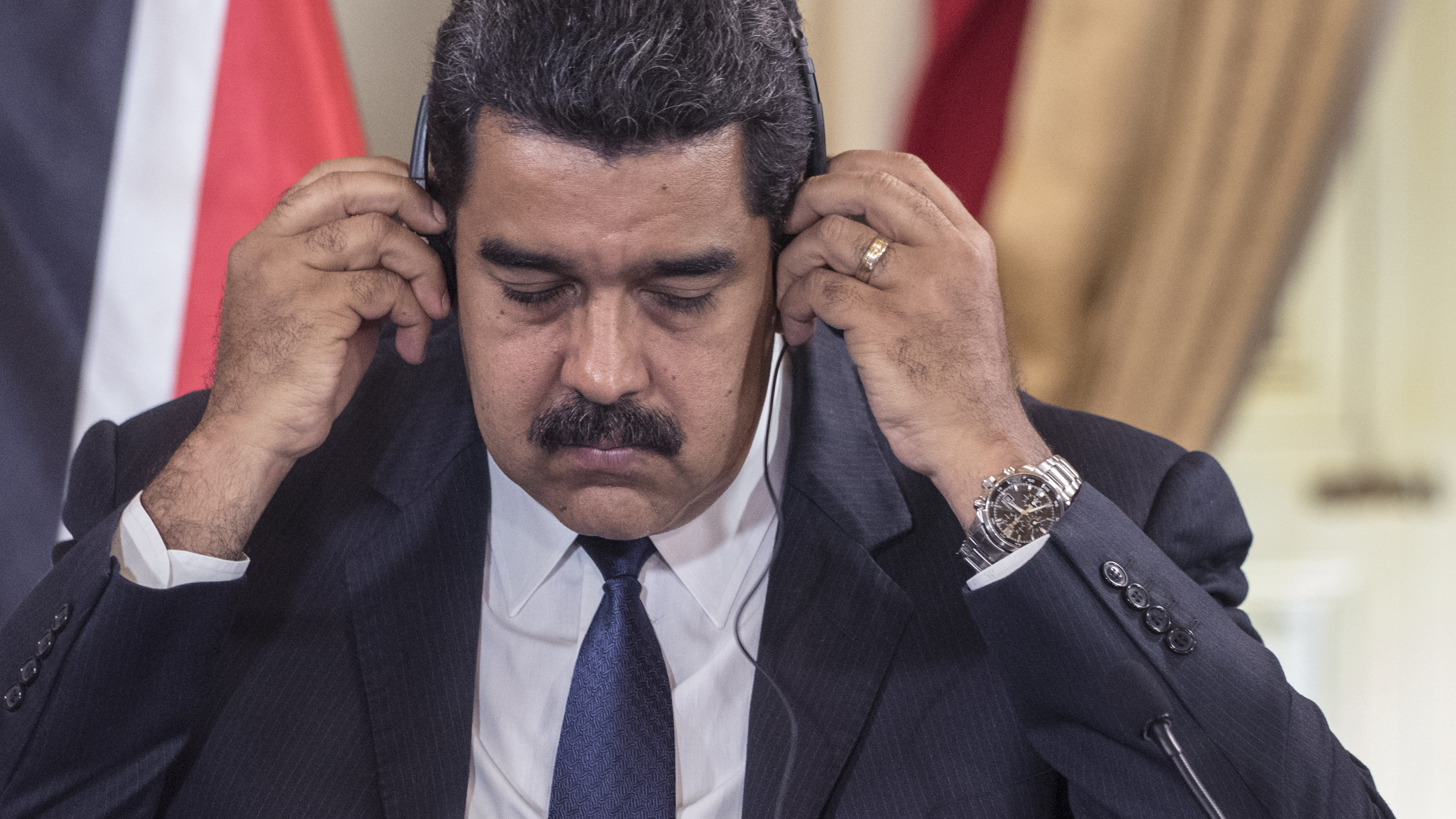The Trump Admin’s Attempt to Redefine a ‘Foreign Affairs Function’

On March 14, Secretary of State Marco Rubio published a notice in the Federal Register in which he purports to
determine that all efforts, conducted by any agency of the federal government, to control the status, entry, and exit of people, and the transfer of goods, services, data, technology, and other items across the borders of the United States, constitute a foreign affairs function of the United States under the Administrative Procedure Act, 5 U.S.C. 553, 554.
This notice has received little attention to date, but it reflects an extraordinarily broad understanding of “foreign affairs function” that seeks to give the executive branch a much freer hand in international trade, immigration, and any other issue involving cross-border exchange. To give one example, since March 10, the Department of Commerce has initiated seven investigations under Section 232 of the Trade Expansion Act of 1962 into whether the import of certain products—including copper, lumber, trucks, and pharmaceuticals—impairs U.S. national security. Under existing precedent, the Commerce Department’s resulting conclusions from these investigations are final agency action reviewable under the APA. Similarly, many of the cases filed challenging the tariffs imposed under the International Emergency Economic Powers Act (IEEPA) include Administrative Procedure Act (APA) claims against the agencies that implement and enforce the president’s tariff orders.
Secretary Rubio’s notice reflects an effort to overturn this settled understanding to further the Trump administration’s ongoing efforts to regulate economic activity via national security and foreign affairs authorities that are centralized in the executive branch and subject to less stringent oversight by the courts. But in enacting the APA and subsequent statutes, Congress clearly did not intend to insulate all agency action taken within the United States but involving goods or people originating outside the United States from the protections of the APA. Federal courts are thus unlikely to agree with Rubio's interpretation.
In enacting the APA in 1946, Congress imposed procedures on rulemaking and adjudication by administrative agencies and provided for judicial review of agency compliance with those procedures. Perhaps the most important and well-known APA procedure is notice-and-comment rulemaking, under which agencies must publish proposed rules in the Federal Register, provide the public an opportunity to comment, and then respond to the comments received. Failure to follow these procedures, or making findings and reaching conclusions during this process that a court deems arbitrary and capricious, provide a basis for setting aside the agency’s rule. During the first Trump administration, courts set aside challenged agency action in 192 out of 246 (or 78 percent) of cases, most on these grounds. Compliance with administrative procedures, in other words, has proved to be a significant check on government overreach.
APA procedures do not, however, apply to all actions. The APA contains exceptions for “the conduct of military or foreign affairs functions” that apply to both agency rulemaking and agency adjudication. In other words, the ordinary APA provisions that require agencies to provide notice and the opportunity to comment on draft rules or to ensure that interested parties have the right to be heard in any adjudication do not apply to the extent that “foreign affairs functions” are involved.
Rubio’s notice appears to seek to insulate nearly all cross-border regulatory activity by the federal government—including by agencies far removed, in the case of the Justice Department, and purposely removed, in the case of the Office of the U.S. Trade Representative, from the State Department—from APA requirements and the resulting review in the courts.
The rationale for this maneuver is sketched out in only a few brief paragraphs. The notice cites the harms that can flow from an uncontrolled border. It centers on the now-familiar concern about migrants and narcotics trafficking that the administration has cited in other contexts, and throws in “spies,” “weapons, and technology” for good measure. Addressing these concerns, the notice says, “requires the United States to marshal all available resources and authorities” and rely on a wide number of agencies, including but not limited to the Defense Department, the Justice Department, Homeland Security, and other unnamed agencies.
Rubio also characterizes his own “primary foreign affairs duty: the duty to protect the people of the United States from any threats originating from foreign actors or from foreign soil.” After noting some traditional responsibilities of the State Department, such as granting visas, exercising diplomatic protection on behalf of U.S. citizens abroad, and administering the Arms Export Control Act, Rubio then concludes by claiming that “the scope of a foreign affairs function of the United States is much broader.”
Apart from its inconsistency with judicial interpretations of the foreign affairs exception, as a practical matter, excepting all regulatory activity that governs the movement of goods and services across borders would give the administration a free hand in areas in which Congress clearly did not intend to eliminate the deliberative processes required by the APA. In many of the challenges to Trump administration actions to date, courts have been able to find that plaintiffs are likely to succeed on the merits of APA claims. That finding of a likelihood of success on the merits is an essential component of granting a preliminary injunction, which courts have done against a wide range of Trump administration actions, ranging from spending cuts to birthright citizenship (to cite only two examples from the president’s current term). By introducing the possibility that the foreign affairs exceptions to APA rules apply, the Trump administration could seek to cast doubt on the likelihood of plaintiffs’ success on the merits of their claims.
The aim of Rubio’s assertion is thus not just to generally insulate government action from review; it is to make it considerably harder for those challenging such action to win temporary restraining orders or preliminary injunctions. In the context of immigration, for example, those forms of immediate relief may be the only meaningful relief a plaintiff facing deportation may be able to obtain.
Large swaths of executive branch activity today fall in the transnational regulatory cooperation space: Nearly every agency is engaged in some form of regulation that has an international element. Earlier administrations encouraged that work
Rubio's announcement is part of a larger trend in government that runs across multiple administrations of both parties that one of us has called “presidential regulation.” A key aspect of presidential regulation is that the president tries to cloak his actions from judicial review by asserting that an ever-expanding set of routine government functions, such as economic regulation and now immigration, are foreign affairs functions. Often, the maneuver aims to invoke the president’s own constitutional authority over foreign affairs in a bid to obtain judicial deference. Here, the aim is to blend those constitutional powers with statutory protections for foreign affairs that Congress has created.
As forceful as Rubio’s announcement seeks to be, it accomplishes little on its own. Although government agencies may take the notice as permission to ignore the APA where cross-border matters are concerned, plaintiffs remain free to challenge government actions under the APA. When they do so, the courts will have to decide whether the exception applies. We would expect courts to apply the foreign affairs exception with the same narrow scope they have since its enactment. Indeed, Secretary Rubio’s announcement is especially poorly timed in light of the Supreme Court’s recent decision in Loper Bright v. Raimondo to curtail judicial deference to agencies. The courts have made clear that they, not administrative agencies, will say what the law is. While individual actions may present novel issues, courts have already rejected the idea that the foreign affairs exceptions allow the administration to act unchecked in the international sphere.



-2.jpg?sfvrsn=f979c73d_6)

